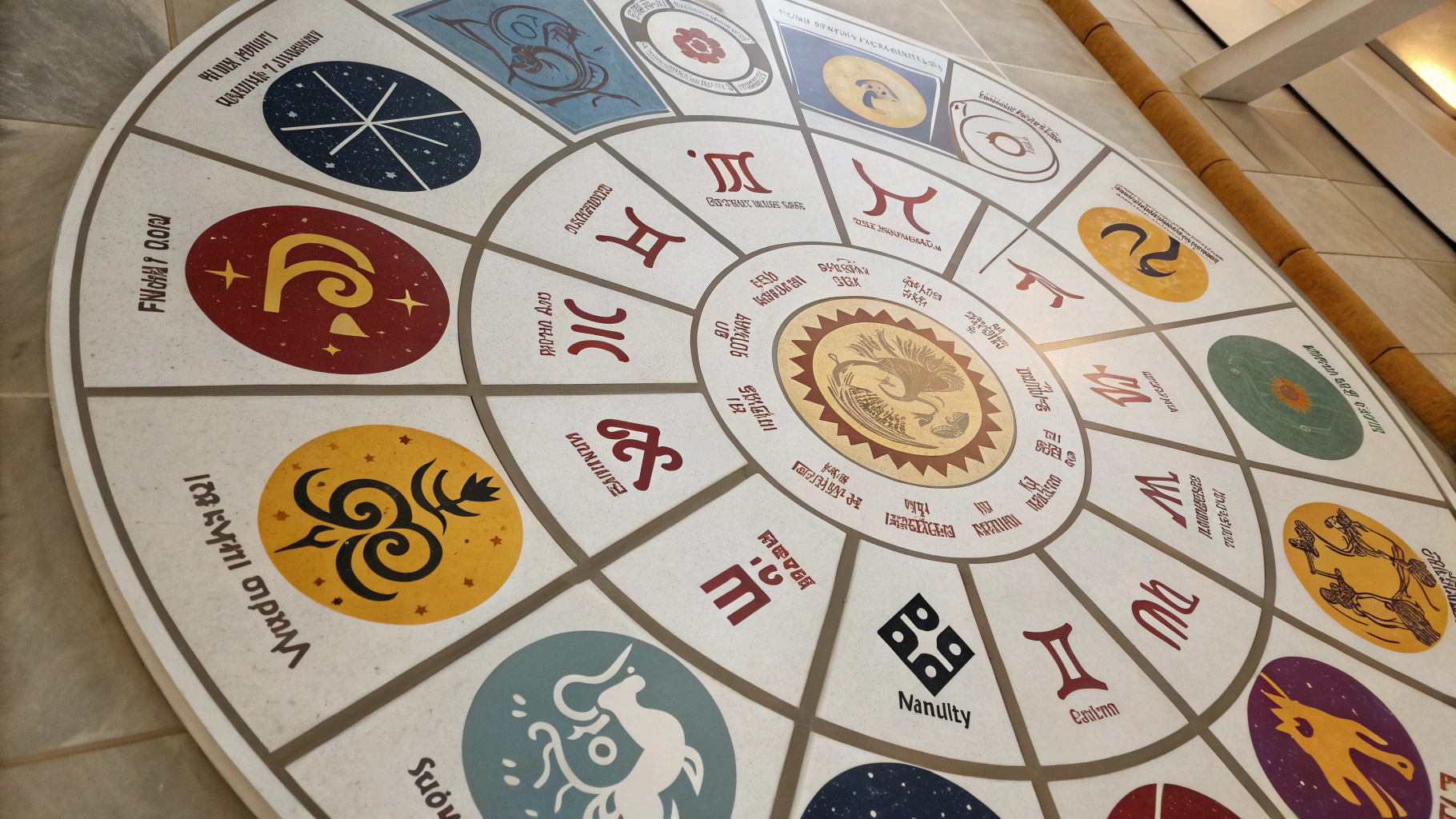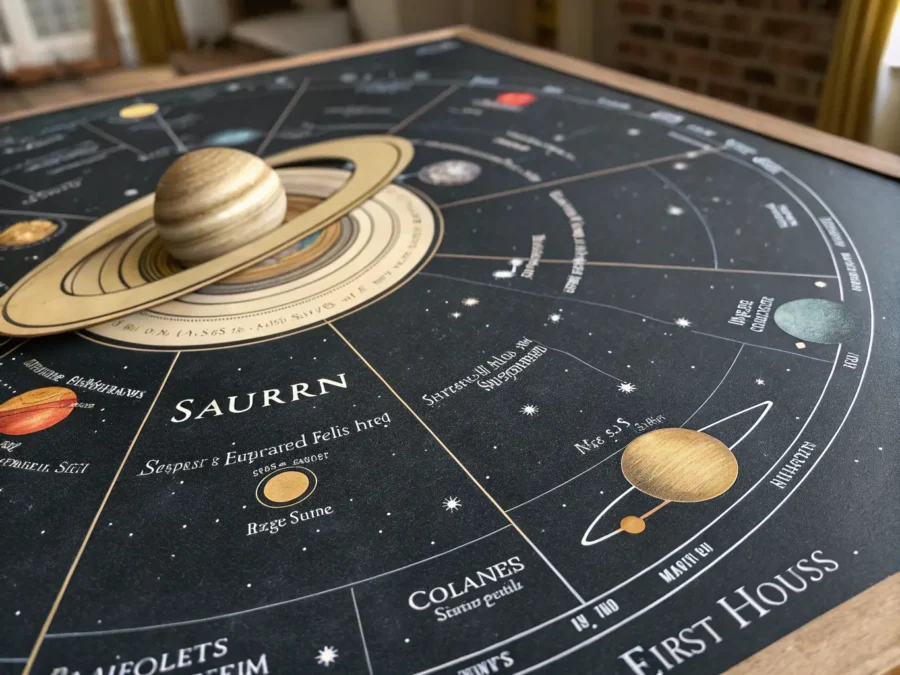Astrology is a fascinating blend of science, art, and intuition that has helped people understand themselves and their relationships for millennia. By exploring different types of astrology, you can gain valuable insights into your personality, compatibility with others, and the best ways to navigate life’s challenges. This guide delves into the top five astrology types and how they can help you find your perfect match.
Understanding Astrology
Astrology is rooted in the belief that the positions of celestial bodies influence human behavior, relationships, and life events. Understanding astrology charts, including natal chart compatibility and Vedic astrology, is crucial for interpreting different astrology types. Its universal appeal lies in its ability to provide guidance and clarity through a detailed understanding of cosmic patterns.
Brief History of Astrology
• Ancient Beginnings: Astrology originated in ancient civilizations such as Mesopotamia, Egypt, and Greece, where celestial observations were used for farming, navigation, and spiritual guidance.
• Etymology: The term “astrology” is derived from the Greek words astron (star) and logia (study), meaning “study of the stars.”
• Cultural Contributions: Indian, Chinese, and Western traditions have each shaped astrology’s evolution, adding layers of depth and complexity. Chinese astrology, with its historical development and philosophical underpinnings, is deeply connected to Chinese philosophy and practices, involving concepts like yin and yang and the zodiac of twelve animal signs. Hindu astrology, also known as Vedic astrology, has significant historical roots and plays a crucial role in Indian culture, influencing various life aspects such as marriage and business.
As astrology evolved, it became a powerful tool for self-discovery, offering insights into personality traits, compatibility, and life’s purpose.
Astrology in Relationships
Astrology can be a powerful tool for understanding and improving relationships. One of the key techniques in relationship astrology is synastry, which involves comparing the birth charts of two individuals to assess their compatibility. By examining the relationships between the planets and signs in each person’s chart, synastry can reveal the strengths and potential challenges in a relationship.
For example, if one person’s Venus (the planet of love) is in harmony with the other person’s Mars (the planet of passion), this can indicate a strong romantic connection. Conversely, challenging aspects between planets might highlight areas where the couple may need to work harder to find common ground.
Another important concept in relationship astrology is the composite chart. This chart is created by combining the birth charts of two individuals to form a single chart that represents the relationship itself. The composite chart provides insights into the overall energy and dynamics of the relationship, helping couples understand their shared purpose and how they can best support each other.
Astrology can also be applied to different types of relationships beyond romantic ones. Whether it’s friendships, family relationships, or professional connections, each type has its own unique energy and dynamics. By using astrology to explore these relationships, you can gain valuable insights into how to navigate them more effectively.
For instance, understanding the astrological compatibility between you and a friend can help you appreciate each other’s strengths and differences, fostering a deeper and more harmonious connection. Similarly, in family relationships, astrology can provide insights into generational patterns and how to break cycles that may be holding you back.
In summary, relationship astrology offers a rich and nuanced approach to understanding the people in your life. By exploring synastry, composite charts, and the unique dynamics of different types of relationships, you can build stronger, more fulfilling connections with those around you.
5 Types of Astrology
Astrology is a versatile field, encompassing several unique systems. Here are the five best astrology types to explore:
1. Western Astrology
Western astrology is perhaps the most widely recognized form of astrology in the world.
• Tropical Zodiac: Western astrology is based on the tropical zodiac, which aligns with the Earth’s equinoctial points. This is often considered astrology based on the tropical zodiac, leading to varying interpretations.
• Horoscope Construction: It uses horoscopes to interpret the positions of celestial bodies at a specific moment, such as birth.
• Applications: Western astrology is used for predicting life events, understanding personality traits, and exploring compatibility.
Zodiac Compatibility in Western Astrology
For example, Leo and Sagittarius, both Fire signs, often share a dynamic, passionate relationship due to their shared adventurous spirit.
2. Vedic Astrology (Jyotish)
Vedic astrology, originating in ancient India, offers a deeply spiritual approach.
• Sidereal Zodiac: Unlike Western astrology, Vedic astrology uses the sidereal zodiac, which is aligned with the fixed positions of stars.
• Sacred Science: Known as Jyotish, or “science of light,” it is used for both predictive and spiritual purposes. This form of astrology is also referred to as Indian astrology, highlighting its ancient roots and practices in India.
• Kundli Charts: Vedic astrology focuses on Kundli (birth charts) to predict life events and assess compatibility.
Marriage Matching in Vedic Astrology
In India, Vedic astrology is often used for marriage matching, considering factors like Gunas and planetary alignment to ensure harmonious relationships.
3. Natal Astrology
Natal astrology centers on an individual’s birth chart, offering insights into their personality and destiny.
• Personal Blueprint: The birth chart acts as a cosmic map, showcasing the positions of the Sun, Moon, planets, and Rising sign at the time of birth.
• Emotional Insights: Natal astrology reveals emotional patterns, strengths, and areas for growth.
• Relationship Compatibility: It is often used to assess compatibility by comparing two individuals’ natal charts.
Celebrity Example:
Taylor Swift, with her Sun in Sagittarius and Moon in Cancer, showcases how natal astrology explains her adventurous yet emotionally introspective nature.
4. Electional Astrology
Electional astrology focuses on choosing the most auspicious times for important life events.
• Timing Matters: It is used to select favorable dates for weddings, business launches, and other significant milestones.
• Planets in Harmony: The alignment of planets is analyzed to ensure success and harmony.
Practical Applications:
For instance, a couple might consult an astrologer to choose a wedding date that aligns with Venus for love and Mercury for communication.
5. Horary Astrology
Horary astrology provides answers to specific questions by analyzing the positions of celestial bodies at the moment the question is asked.
• Focused Guidance: It offers insights into issues like career decisions, relationships, or financial matters.
• Quick Answers: Unlike other types, horary astrology delivers concise answers, making it ideal for immediate concerns.
Example Question:
“Should I accept the job offer?” A horary chart can reveal whether the timing and circumstances are favorable.
Zodiac Signs and Compatibility
Zodiac signs are central to all forms of astrology, helping us understand personality traits and compatibility:
• Fire Signs (Aries, Leo, Sagittarius): Passionate and energetic, they thrive with Air signs.
• Earth Signs (Taurus, Virgo, Capricorn): Grounded and practical, they connect well with Water signs.
• Air Signs (Gemini, Libra, Aquarius): Intellectual and social, they inspire Fire signs.
• Water Signs (Cancer, Scorpio, Pisces): Intuitive and emotional, they find stability with Earth signs.
Understanding these dynamics helps individuals build stronger, more harmonious relationships.
Specialized Astrology Types
Beyond the five primary astrology types, several specialized practices cater to specific needs:
• Medical Astrology: Explores the relationship between astrology and health.
• Financial Astrology: Offers insights into market trends and personal finances.
• Esoteric Astrology: Focuses on spiritual growth and soul alignment.
Traditional astrology, particularly Hellenistic and Medieval, emphasizes understanding personal circumstances and future planning, exploring broader influences such as place and community.
Finding Your Perfect Match with Astrology
Astrology offers powerful tools for understanding and improving relationships:
• Birth Chart Comparison: Comparing charts reveals areas of compatibility and potential challenges.
• Numerology and Angel Numbers: Complementary practices like numerology can enhance astrological insights, offering additional guidance in relationships.
For example, if your birth chart highlights Venus in Libra, pairing with someone whose chart complements your need for harmony and beauty can create a balanced relationship.
Conclusion
Astrology is a timeless practice that continues to inspire and guide people in their personal and relational journeys. By exploring Western, Vedic, Natal, Electional, and Horary astrology, you can find the system that resonates most with you. Whether seeking love, career guidance, or personal growth, astrology provides a roadmap to understanding yourself and others.
With tools like natal charts and zodiac insights, astrology unlocks the mysteries of the cosmos, offering a path toward fulfillment and harmony. Start your journey today and discover how the stars align for you.
Frequently Asked Questions (FAQ)
1. What is Astrology?
Astrology is the study of celestial bodies’ movements and positions and their influence on human affairs and the natural world. It uses tools like natal charts and zodiac signs to provide insights into personality, relationships, and life events.
2. What are the different types of astrology?
The main types of astrology include:
• Western Astrology: Uses the tropical zodiac to interpret celestial movements.
• Vedic Astrology: Focuses on the sidereal zodiac and is rooted in ancient Indian traditions.
• Natal Astrology: Analyzes an individual’s birth chart for personality and life path insights.
• Horary Astrology: Answers specific questions based on planetary positions at the time the question is asked.
• Electional Astrology: Determines the best timing for significant life events.
3. What is a natal chart?
A natal chart, also known as a birth chart, is a map of the sky at the time and place of your birth. It includes the positions of the Sun, Moon, planets, and Rising sign, offering a detailed view of your personality, strengths, and life potential.
4. How can astrology help in relationships?
Astrology can:
• Reveal compatibility through zodiac signs and birth chart comparisons.
• Provide insights into communication styles, emotional needs, and potential challenges.
• Suggest ways to build stronger connections based on astrological alignments.
5. What is the difference between the Sun sign and Rising sign?
• Sun Sign: Represents your core personality, values, and ego.
• Rising Sign (Ascendant): Reflects how you present yourself to the world and influences your outward behavior.
6. Can astrology predict the future?
Astrology doesn’t predict the future with absolute certainty but offers guidance by highlighting patterns, opportunities, and potential challenges based on planetary movements.
7. How accurate are astrology readings?
The accuracy of astrology readings depends on:
• The skill and experience of the astrologer.
• The accuracy of the birth data provided.
While astrology offers valuable insights, it is ultimately a tool for guidance, not a definitive answer.
8. What are zodiac signs?
Zodiac signs are 12 astrological divisions based on the Sun’s position in the sky. Each sign has unique traits and characteristics that influence individuals born under that sign.
9. How can I find my zodiac sign and natal chart?
You can discover your zodiac sign by your birth date. For a full natal chart, you’ll need:
• Date of birth
• Exact time of birth
• Place of birth
Tools like Deluxe Astrology provide free natal chart calculators to explore your astrological profile.
10. Can astrology help in choosing career paths?
Yes, astrology can:
• Identify strengths and talents through planetary placements.
• Offer guidance on career paths that align with your astrological profile.
• Help you navigate challenges and make informed professional decisions.
11. What are the lunar nodes?
The North Node and South Node represent your soul’s journey:
• North Node: Indicates future growth and life direction.
• South Node: Reflects past life patterns and areas to move beyond.
12. How does numerology complement astrology?
Numerology and astrology both explore cosmic patterns:
• Numerology focuses on numbers derived from your birth date and name.
• Astrology uses celestial movements and birth charts.
Combining these practices offers deeper insights into personality and life purpose.
13. Is astrology backed by science?
While astrology isn’t considered a science, it is a centuries-old system rooted in observation and interpretation of celestial phenomena. It offers guidance and self-awareness rather than scientific proof.
14. Where can I learn more about astrology?
Explore resources like Deluxe Astrology for:
• Free natal chart calculators
• In-depth astrology articles
• Zodiac compatibility guides
• Personalized consultations with professional astrologers.


